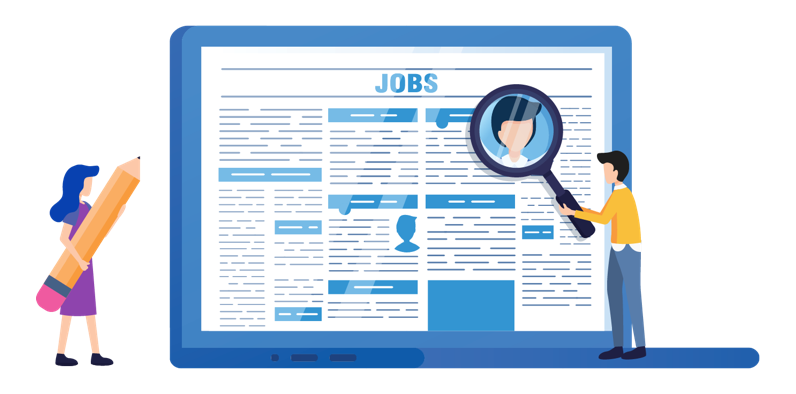Reference Checks: Everything A Recruiter Needs to Know
Hiring Success GlossaryWhat is an Employment Reference Check?
For more than a century, employment reference checks have helped employers confirm the information provided by job candidates, learn more about them, and help make hiring decisions.
Table of Contents- What is a reference check?
- When do you do a reference check?
- Strengths and weaknesses of reference checks
- Tips for conducting reference checks
- Reference check questions
- Reference checking services
What is a reference check?
Many employers check references as part of the hiring process. Checking references involves contacting previous employers, supervisors, schools, or other contacts of the job candidates. The employer or reference-checking company verifies employment and educational information and learns more about a candidate’s background, experiences, and skills.
When do you do a reference check?
Often, reference checks are done toward the end of the hiring process. The employer wants to verify information about a candidate. Or, they want more information to make a decision between two or three candidates.
Occasionally, however, reference checks are done much earlier, such as before or after the first interview. There have been situations where an employee lies about their background, or even unusual cases where they take on a false identity. These early reference checks cost more money and time early on, but, along with background checks, help reduce the risk of spending time on a hiring process with a candidate who has provided false information.
Strengths and weaknesses of reference checks
Many experts debate the usefulness of reference checks. Skeptics argue that reference checks:
- Do little more than confirm the candidate you’ve already decided to hire.
- Foreclose any real opportunity to uncover “red flags,” since candidates only submit references who will sing their praises
- Make the referee nervous that they will be sued if they say something negative, thus limiting what information will be provided
- Are largely ignored by companies and hiring managers
Reference-check proponents argue that reference checks should not be about finding a reason to reject a job candidate. When done well, reference checks can provide information about a candidate’s strengths and limitations in order to best support them once they are on the job. Rejecting people because of a reference check should be the exception, not the rule. Taking the approach of looking for more reasons to hire the candidate helps reference checks become a positive process for everyone.
Tips for conducting reference checks
Here are some tips for ensuring your reference check process is effective.
- Seek input from the interview team. The interview team may have a specific piece of information they’d like to focus on. Are there any concerns interviewers have about the candidate? Is there information you wish you knew more about, or would like to follow up on?
- Describe the job and ask specific questions pertaining to its responsibilities. Say something like, “To succeed in this role, you need to be able to do x, y, and z.” Then, allow the reference to explain how they think the candidate fits those criteria. This is a far more effective and productive strategy than asking, for example, “Do you think [candidate] can do x?”
- Ask specific, but open-ended, questions. General questions like “Tell me about [candidate]” will likely result in vague answers like “They’re great!” Instead, ask for specific examples from their reference or for further details on a project you’re aware of. For example, “We learned [candidate] led the redesign of your new website. Can you tell me more about their role in that project?”
Reference check questions
Tailor each reference to your organization’s needs or concerns for a given candidate. We also recommend that you check with the legal team to make sure the questions are allowed in your state.
Create a template for all prospective hires. Here is a list of common reference check questions to include in your template,
- Can you verify the job candidate’s employment dates, job title, and responsibilities? Why did they leave that job?
- How do you know the job candidate?
- What makes the candidate a good fit for this job?
- If you had the opportunity, would you rehire this job candidate? Why?
- What are the candidate’s biggest strengths and weaknesses?
- Did the candidate get along with their co-workers and management?
- How did (name) handle conflict? How about pressure? Stress?
- What advice can you give me to successfully manage the job candidate?
- What else do I need to know about the job candidate that I didn’t already ask?
Reference checking services
Many organizations outsource their reference checking to services that specialize in online, automated reference checking.
They all work a little differently. Some of them will send a note to references provided by a candidate, and ask those references to fill out a short survey.
Many of these services have expertise in fraud detection, I/O psychology, and IT that has made the reference-checking process smoother and faster than it used to be. In the past, employers had to exchange multiple phone calls and messages to reach someone. Some reference-checking vendors even help you increase your talent pool by inviting referees to join the pool, making them potential future hires.
You’ll want to use a reference-checking service that integrates with your applicant tracking system (ATS). This will help the hiring process move along smoothly without delays. When you move a candidate to a predefined stage in the ATS, the reference check can be triggered automatically. When the reference check is completed, the report can be viewed within the ATS. These features eliminate the need for recruiters to log in to the reference-checking tool and re-enter candidate information.
Social media and reference checking
You may be tempted to use social media in reference checking. This can include searching the candidate's public profiles and searching the contacts of your potential hire to see what they’ve posted online about the candidate.
Our advice on reference checking on social media is as follows.
- Ask your outsourced vendor how they use social media, if at all, and what their recommendations are in this area.
- Consult with your attorney on the use of social media when checking references.
- When checking references on social media, be consistent. Managers shouldn’t review the LinkedIn posts of one candidate’s contacts and not another candidate’s contacts.
This last piece of advice, about consistency when using social media, applies to the entire reference-checking process. Whatever your policy – contacting references or not – should be done consistently so as to not interject any possible bias in the hiring process.



